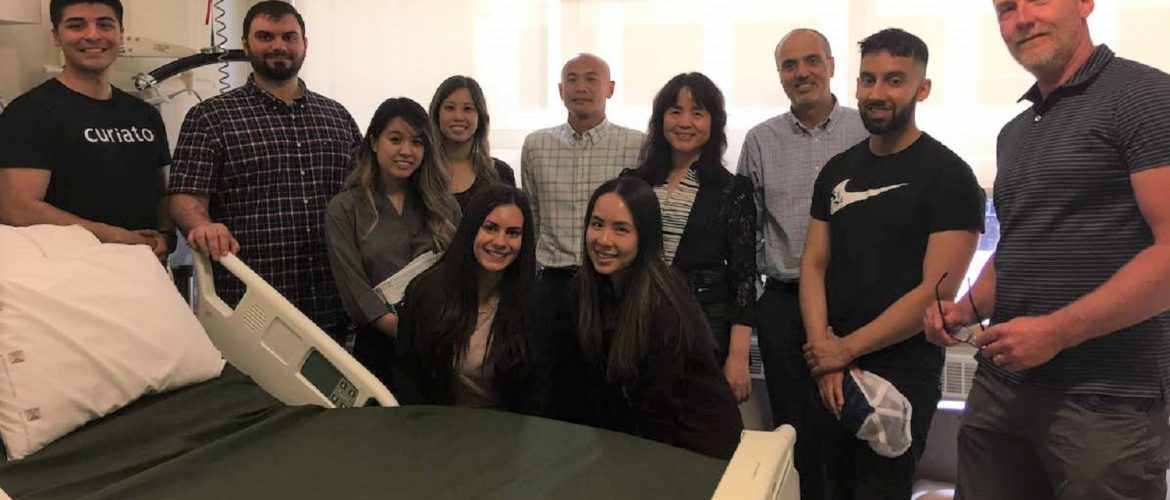In light of the current public-health emergency caused by COVID-19, the Centre for Aging + Brain Health Innovation (CABHI) will be releasing a series of blogs about the aging and brain health solutions aimed at promoting the physical, cognitive, and social well-being of seniors and their caregivers. It is our hope that these resources prove beneficial during this time.
The global longevity sector has experienced major challenges due to COVID-19. Long-term care residents, hospital staff, and older adults, especially those with underlying health complications, continue to be among those most impacted by the pandemic in Canada and around the world[i]. Digital healthcare innovators across the country are responding to these challenges by leveraging their solutions to address the immediate needs of seniors and their caregivers, as well as the long-term effects of the virus on senior care.
Below are some of these innovators and their solutions, which vary from virtual clinician-support systems, to products helping seniors communicate with family members, and remote patient monitoring platforms. By offering real-time solutions, these innovations demonstrate the importance of flexible, digitally-driven healthcare resources that can evolve to meet the needs of older adults and their circle of care, both during the present health crisis and beyond.
CareStory
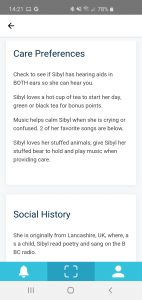
The CareStory app
CareStory empowers caregivers and family members to provide person-centred care to older adults. By using a QR code, the app captures a resident’s personalized care needs, for example, the assisted device they prefer or the type of music that calms them when agitated. “This gives caregivers lots of support,” says Bill Dai, President of Emersewell, the company that developed CareStory with Baycrest. “It can reduce onboarding cost, time, caregiver turnover rate, number of responsive behaviours by residents, and use of sedatives.”
This app will be especially helpful to new staff and volunteers coming in to provide extra support to long-term care facilities during COVID-19. By supplying real-time updates on the unique needs of residents, the app will allow staff to provide quality care and reduce the burden of their workload. The app will also give family members peace of mind, knowing that they can contribute to the care of their loved ones while observing physical distancing protocols.
Careteam
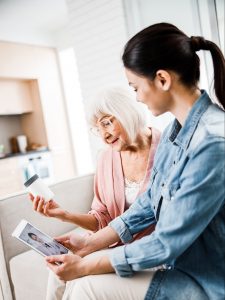
Careteam brings together patients, their personal support teams and healthcare professionals through a collaboration platform that focuses on person-centred care.
The platform, which was developed and tested with support from CABHI’s I2P2 program, is based around a shared care plan and secure communication. As part of its COVID-19 response, Careteam can triage COVID-related cases and provide tailored information, remote check-ins, and follow-ups. For example, if a patient has been tested or told to self-isolate due to risk of exposure, Careteam will provide follow-up care instructions specific to their situation and set up virtual check-in appointments with their care providers.
“Through Careteam we are able to make sure that a person’s COVID-19 status is being updated, while also making sure that their regular health needs are being addressed so they don’t end up with deteriorating health,” says Careteam Chief Commercial Officer, Jeremy Smith.
Curiato
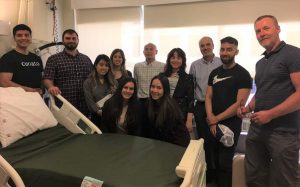
The Curiato team and their smart patient monitoring platform.
Curiato’s patient monitoring platform aims to reduce caregiver burden and improve safety measures for front-line staff. Powered by a thin, flexible smart bed cover, the platform transforms any surface into a monitoring system, one with the capacity to collect actionable health information such as temperature, moisture and pressure.
Curiato also plans to adapt their platform to detect for thermal stress (extreme changes in skin temperature), a known indicator for worsening conditions brought on by viruses like COVID-19.
Dean Sas, Curiato’s Chief Business & Financial Officer, believes the system can build capacity in the healthcare system and prevent exposure to the virus by allowing staff to remotely monitor patients. “The technology we’re developing with support from CABHI can reduce the frequency of direct contact procedures with the patients,” says Sas.
GeriMedRisk
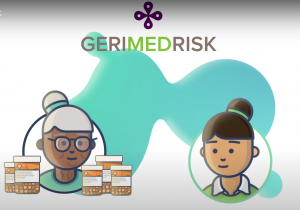
CABHI-supported GeriMedRisk is an interdisciplinary telemedicine consultation and education service for doctors, nurse practitioners and pharmacists. Using telephone and eConsult, clinicians receive a coordinated response to questions about optimizing medications, mental health and comorbidities in older adult patients from a team of geriatric specialists and pharmacists.
GeriMedRisk’s COVID-19 resources are designed to provide updated information on the various treatment methods that clinicians may want to use to treat their patients. These resources are especially important for clinicians whose patients have underlying health challenges in addition to the COVID-19 virus.
Dr. Joanne Ho, creator of GeriMedRisk, says their COVID-19 tools will help prevent adverse health outcomes caused by over-medication. “Our hope is that we can make it really easy and efficient to provide prescribers with a refresher on medication so they can become familiar with the drug interaction and benefits as it pertains to their older adult patients.”
MEMOTEXT
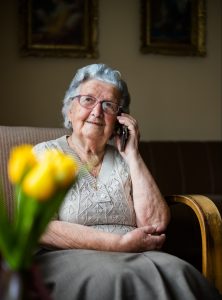 CABHI-supported healthcare startup, MEMOTEXT, is leveraging its Ring of Support (RoS) system to act as an at-home health-check and COVID-19 screener for seniors.
CABHI-supported healthcare startup, MEMOTEXT, is leveraging its Ring of Support (RoS) system to act as an at-home health-check and COVID-19 screener for seniors.
RoS is a personalized platform that uses automated phone calls and Amazon’s Alexa voice assistant to provide users with daily medication and event reminders. The voice assistant connects to virtual care provider, SEHealth, so that a nurse can be dispatched in case of an emergency. Caregivers can also receive corresponding updates through their mobile device.
MEMOTEXT Founder & President, Amos Adler, wanted to adapt the RoS system to help seniors access around-the-clock healthcare without risking exposure to the virus by visiting a hospital or doctor’s office.
Since being launched in early March, the RoS COVID-19 Rapid Response tool has been deployed in 18,000 homes.
[i] https://www.ontario.ca/page/covid-19-action-plan-long-term-care-homes

